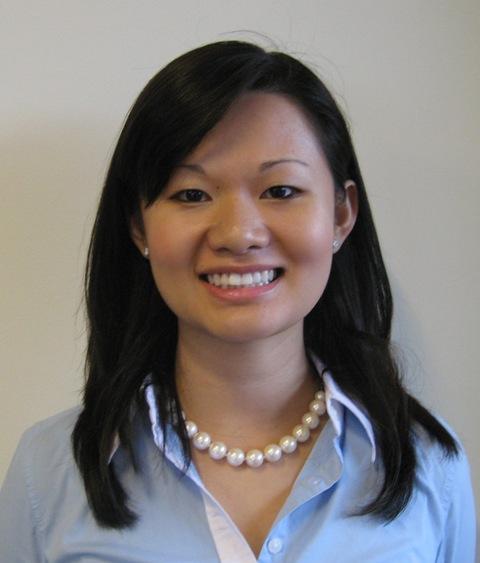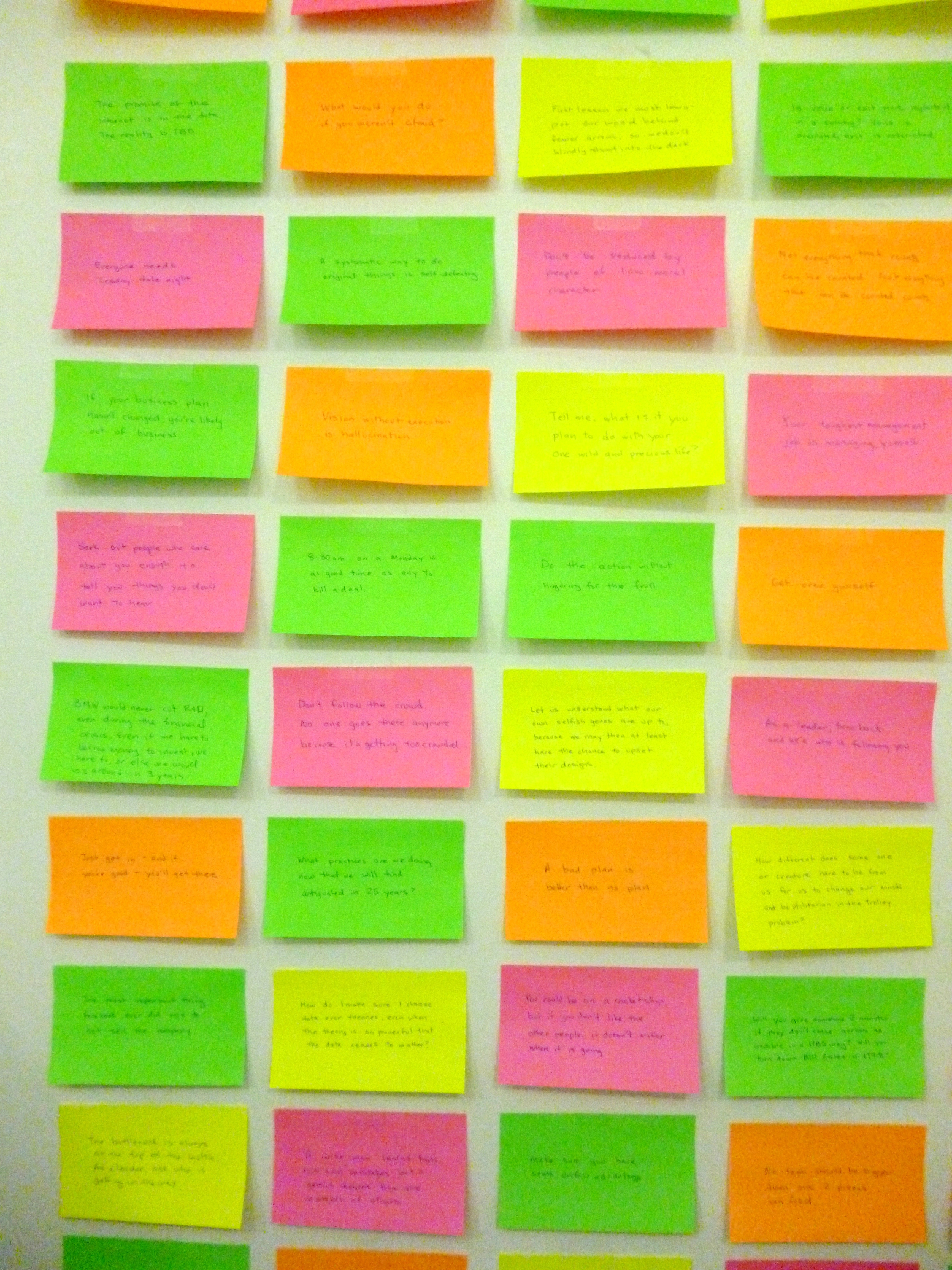-
Target Test Prep 20% Off Flash Sale is on! Code: FLASH20
Redeem
Lessons on Living: Reflections on the First Semester of Harvard Business School
 Lilly Deng, a first year MBA at Harvard Business School, shares her experience studying at one of the best schools in the world.
Lilly Deng, a first year MBA at Harvard Business School, shares her experience studying at one of the best schools in the world.
Each Friday, Ive taken a few minutes to look back on the prior week and jot down lessons learned at business school.
Reflection is a big part of the HBS experience, from formal weekly reflections for a class on Leadership and Corporate Accountability to talks weve attended on heavy-hitting topics like Exercising Professional Judgment. Built into the curriculum is an assignment on reading profiles from the Class of 1976 and writing our own update for our future version of the life we hope to share at our 10th Year Reunion, an exercise that has prompted further reflections about what we want to gain out of our business education and the life we aspire to lead. I've iPhone noted, gmailed, and scribbled in notebooks learnings to add to my quote wall (pictured below).
Sometimes theyre wise sayings from a sectionmates grandmother such as With lies, you can get ahead but you can never go back or questions guest speakers have posed, What do you want Fortune to write in 15 years?
Sometimes theyre aphorisms on business, my two favorites being Vision without execution is hallucination and Operations is about enabling ordinary people to do extraordinary things.
 And sometimes, theyre just good reminders on whats important in life: Everybody needs Tuesday date night!
And sometimes, theyre just good reminders on whats important in life: Everybody needs Tuesday date night!
Ive learned too much at business school to cover it all in a single blog post, but hope to impart the key takeaways from my first semester at HBS.
#1 To those whom much is given, much is expected.
With HBS mission that we educate leaders who make a difference in the world, its no surprise weve been asked from day one: What is the difference you are going to make in the world?
Of course weve thought about this before business school, at the very least through our admissions essays if not, in many cases, a broader question and discovery process, but the idea of the responsibility to make a difference permeates through every facet of business school life.
On the first day of school, for example, we participated in a photo project where we read recent graduates 250-word reflections in response to Mary Olivers poem, One Summer Day. In that poem, she asks, Tell me, what is it you plan to do with your one wild and precious life? The answer is almost never I want to start a billion dollar hedge fund and make the Forbes 400. If theyre focused on business at all, theyre often to the tune of, I want to build a company that changes healthcare as we know it, or I want to start a company that honors the values my parents taught me. More often than not, the graduates talk about finding the right partner for life, pursuing wide-ranging passions from biking cross country to publishing a book, and returning to their hometown to alleviate poverty and address unmet needs. Or course they want to be successful in business...but its equally important to be successful in the business of life.
The other thing that has impressed upon me is not only do we have a great responsibility to make a difference, we can, in fact, actually do so. Many of our classroom cases are about HBS graduates who have gone on to start organizations to distribute water filters in Tanzania or have changed the ethical culture of a large corporation theyve worked in. In a class on corruption, for example, our professor discussed the wide-ranging implications of corruption, and noted that the single best way to combat corruption is for the most senior people to take a 100% anti-corruption stance. He finished the class simply by saying, You can change the world.
The message has stuck.
#2 Just do it, try it, test it.
The entrepreneurship attitude and community on campus is incredible and infectious. From the newly opened Harvard Innovation Lab (i-lab) to StartupTribe, theres a great sense that now is the time we can take smart risks.
In our new experiential-learning course, FIELD, for example, weve been tasked to originate a business and launch it with a Minimum Viable Product within two months. The central idea is to test hypotheses at a much lower cost than normally possible. (A very cool startup, Birchbox, was founded by two HBS students who started out by sending a sample beauty product to 200 friends and family. They are now one of the hottest startups in the space.)
Beyond that, weve heard a speaker tell us Dont follow the crowd, no one goes there anymore because its getting too crowded and others caution us about following the herd mentality into traditional paths like banking and consulting. Weve been asked What would you do if you werent afraid? Weve been told to get out of our HBS way of thinking, because A systematic way to do original things is self-defeating.
#3 Its never too late or early to be who you want to be.
Its very easy to say When I get to be x, then I will do y. Why not start doing y today? Why not start adopting the practices, belief systems, and attitudes of the leaders we admire today, instead of waiting until tomorrow?
During business school, many of us read HBS Professor Clay Christensens article, How Will You Measure Your Life? One part of the article is about the allocation of resources: how will you spend your precious time to achieve the life you want? Hes worth quoting in full:
People who are driven to excel have this unconscious propensity to underinvest in their families and overinvest in their careerseven though intimate and loving relationships with their families are the most powerful and enduring source of happiness. If you study the root causes of business disasters, over and over youll find this predisposition toward endeavors that offer immediate gratification. If you look at personal lives through that lens, youll see the same stunning and sobering pattern: people allocating fewer and fewer resources to the things they would have once said mattered most.
His lessons, and so many others from many others from my first semester of business school, have enriched, expanded, and enforced my personal ethos on leading a fulfilling life:
- Your toughest management job is managing yourself.
- Add value before you take credit.
- Get over yourself.
- Seek out people who care about you enough to tell you things you dont want to hear.
- What got you here wont get you there.
- You get in the game with your numbers. You get promoted based on your values.
Finally, my favorite from this semester: Just get in and if youre good youll get there.
Lilly Deng is a first-year student at Harvard Business School. At HBS, she is Director of Marketing for the TechMedia and Retail & Luxury Goods clubs and blogs for the Women's Student Association. She occasionally updates a hobbyist art website, posts poetry, and blogs about her fabulous food finds. She graduated from Harvard College and was an associate at the Boston Consulting Group. Following business school, she plans to pursue careers in consumer/retail and media/tech.
Recent Articles
Archive
- April 2024
- March 2024
- February 2024
- January 2024
- December 2023
- November 2023
- October 2023
- September 2023
- July 2023
- June 2023
- May 2023
- April 2023
- March 2023
- February 2023
- January 2023
- December 2022
- November 2022
- October 2022
- September 2022
- August 2022
- July 2022
- June 2022
- May 2022
- April 2022
- March 2022
- February 2022
- January 2022
- December 2021
- November 2021
- October 2021
- September 2021
- August 2021
- July 2021
- June 2021
- May 2021
- April 2021
- March 2021
- February 2021
- January 2021
- December 2020
- November 2020
- October 2020
- September 2020
- August 2020
- July 2020
- June 2020
- May 2020
- April 2020
- March 2020
- February 2020
- January 2020
- December 2019
- November 2019
- October 2019
- September 2019
- August 2019
- July 2019
- June 2019
- May 2019
- April 2019
- March 2019
- February 2019
- January 2019
- December 2018
- November 2018
- October 2018
- September 2018
- August 2018
- July 2018
- June 2018
- May 2018
- April 2018
- March 2018
- February 2018
- January 2018
- December 2017
- November 2017
- October 2017
- September 2017
- August 2017
- July 2017
- June 2017
- May 2017
- April 2017
- March 2017
- February 2017
- January 2017
- December 2016
- November 2016
- October 2016
- September 2016
- August 2016
- July 2016
- June 2016
- May 2016
- April 2016
- March 2016
- February 2016
- January 2016
- December 2015
- November 2015
- October 2015
- September 2015
- August 2015
- July 2015
- June 2015
- May 2015
- April 2015
- March 2015
- February 2015
- January 2015
- December 2014
- November 2014
- October 2014
- September 2014
- August 2014
- July 2014
- June 2014
- May 2014
- April 2014
- March 2014
- February 2014
- January 2014
- December 2013
- November 2013
- October 2013
- September 2013
- August 2013
- July 2013
- June 2013
- May 2013
- April 2013
- March 2013
- February 2013
- January 2013
- December 2012
- November 2012
- October 2012
- September 2012
- August 2012
- July 2012
- June 2012
- May 2012
- April 2012
- March 2012
- February 2012
- January 2012
- December 2011
- November 2011
- October 2011
- September 2011
- August 2011
- July 2011
- June 2011
- May 2011
- April 2011
- March 2011
- February 2011
- January 2011
- December 2010
- November 2010
- October 2010
- September 2010
- August 2010
- July 2010
- June 2010
- May 2010
- April 2010
- March 2010
- February 2010
- January 2010
- December 2009
- November 2009
- October 2009
- September 2009
- August 2009